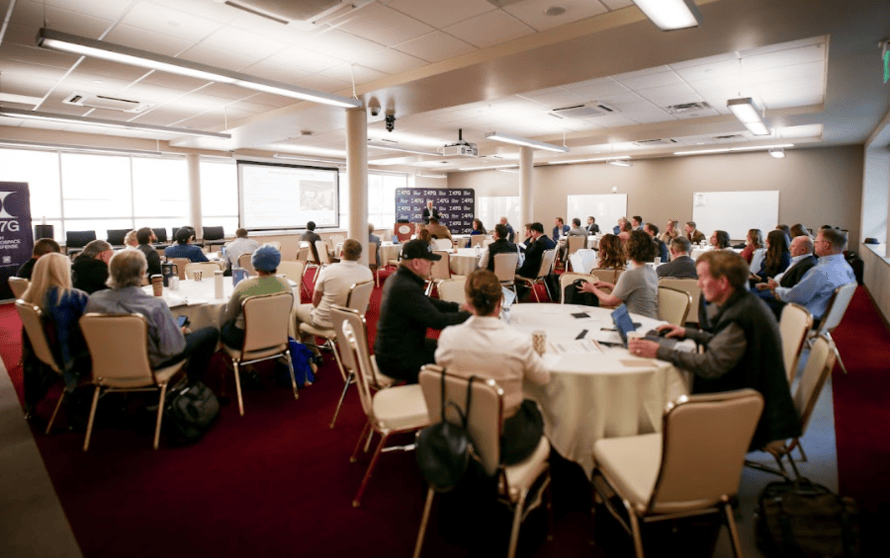

Salt Lake City, Utah — April 15, 2025
Leaders from government, industry, and tribal communities gathered last week at the Thomas S. Monson Center in downtown Salt Lake City for the EDA Tech Hub Synergy Symposium, a landmark event focused on building Utah’s next-generation manufacturing workforce and expanding access to economic opportunities in the critical materials sector.
The event, co-hosted by 47G Institute, University of Nevada, Reno, marked a significant step toward aligning regional education pipelines, tribal consultation practices, and rural economic development strategies with the rapidly growing demand for advanced materials.
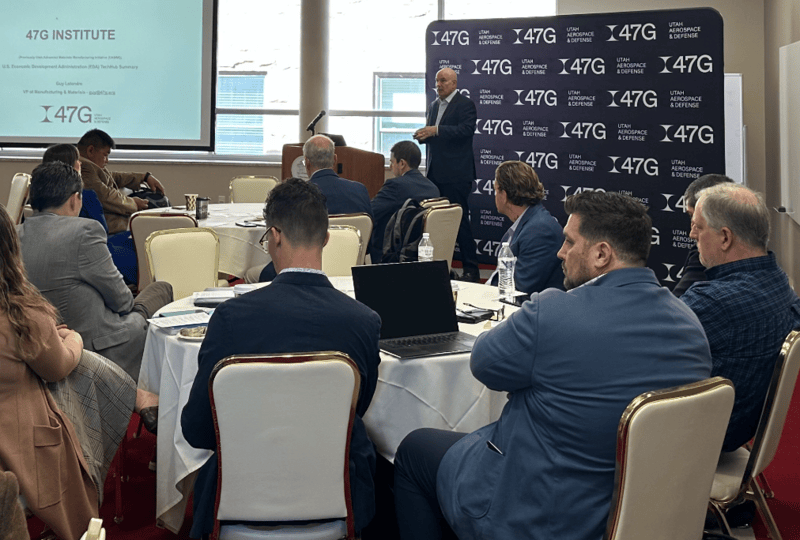
At the heart of the symposium was a shared understanding: to succeed in the race for critical minerals and advanced manufacturing, the region must ensure that rural and tribal communities are not only included — but central to the strategy.
Sheldon Mudd, Executive Director at the Northeastern Nevada Regional Development Authority, emphasized the urgency of inclusivity, stating that, “We don’t have the luxury to be exclusive. Rural areas hold significant resources that can drive future growth. We need everyone at the table.”
Building Trust with Tribal Nations
Speakers stressed that genuine partnership with Native communities is essential — not just for ethical reasons, but for sustainable, long-term project success.
“Companies who engage early and often, who build relationships and trust, are the ones that succeed,” said Andrea Martinez, founder and CEO of Walker River Strategies. She noted that trust is not automatic, especially given the legacy of trauma experienced by tribal nations. “Tribal nations are still healing from the trauma of being forced into boarding schools and losing trust in partnerships. We need to build that trust and ensure it’s reciprocated.”
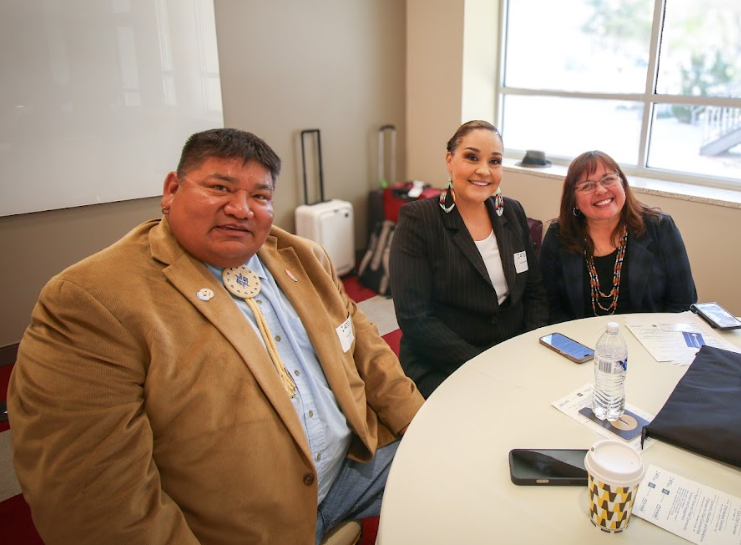
Jason Walker, of the Northwestern Band of the Shoshone Nation, explained that turnover within tribal leadership can disrupt partnerships, saying, “When leadership changes, it can create challenges. We have to relearn everything when new members are elected to the council.” He also underscored the importance of respect, adding, “Our mission is to take care of our people, but we also have to respect the land.”
James Toledo, Deputy Director of the Utah Division of Indian Affairs, echoed the importance of consultation, explaining that, “Consultation isn’t just about checking a box. It’s about ongoing communication, keeping tribes informed, and addressing their feedback throughout the process.” He added that collaboration with state government can help solve issues like infrastructure gaps and access to rights of way that often slow down development in tribal and rural regions.
47G Institute’s Workforce Strategy: Start Earlier, Aim Broader
A major theme at the symposium was workforce development, particularly the need to engage students well before college. David Beckerman, Director of Strategic Initiatives at 47G and a key figure in 47G Institute’s education efforts, said, “One of our main goals is to focus on workforce, analyzing the data to see where we need to grow.” According to Beckerman, demand for engineers, project managers, and data scientists in critical materials is rising, but the talent pipeline isn’t keeping up.
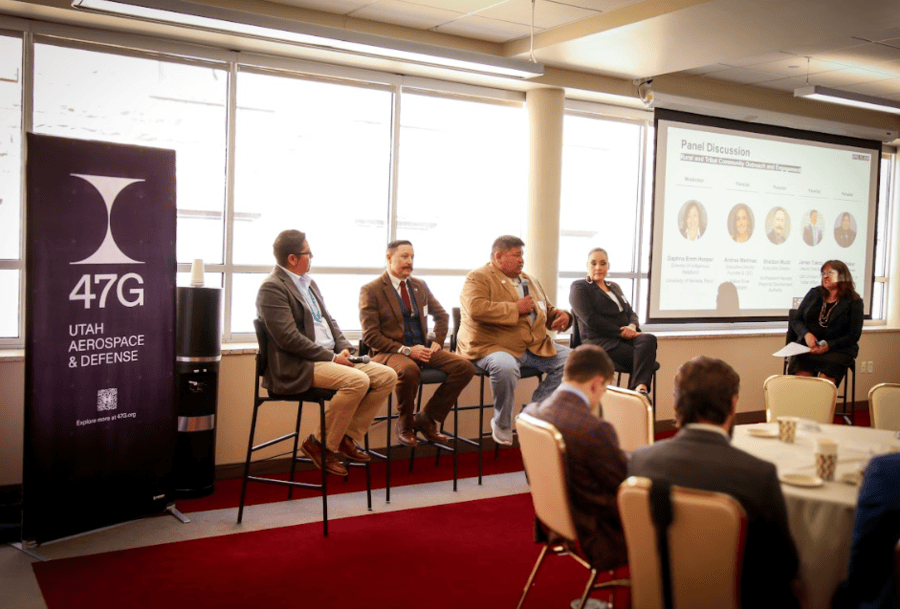
To address this, 47G Institute is building programs that begin in junior high and high school. “We need to start early, getting students excited about critical materials and manufacturing fields before they even enter college,” Beckerman said. He noted that 47G is using virtual reality and other hands-on tools to “show young people that critical materials are not just about mining, but about creating the technologies that drive modern life.”
Beckerman also highlighted the role of industry in making these programs successful. “Industry has to invest in training, even if they don’t hire every graduate. It benefits the community in the long run,” he said.
From Talk to Action
The event closed with calls to action — better infrastructure, continued tribal engagement, and long-term investment in education and training. “We need to engage communities early, listen to their needs, and ensure that opportunities are accessible to everyone, no matter where they live,” Beckerman concluded.
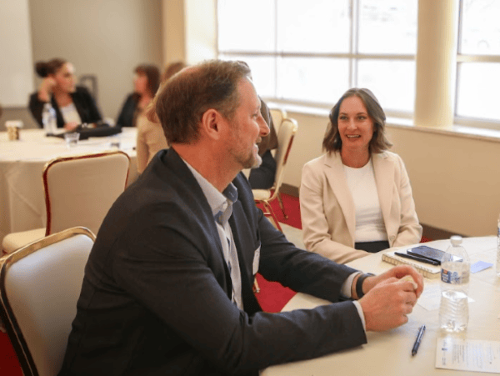
By focusing on workforce development, sustainable mining practices, and the creation of educational curricula, 47G is working to ensure that local communities are not only prepared for the economic opportunities arising from critical minerals but also actively involved in shaping the future of the industry.
The EDA Tech Hub Synergy Symposium emphasized that real, lasting progress will come from engaging with communities early, understanding their unique needs, and building strong, respectful relationships. With a continued focus on these principles, Utah’s growing manufacturing sector has the potential to thrive while ensuring that the benefits are shared across all communities, particularly those in rural and tribal areas.
For more information, contact 47G.
